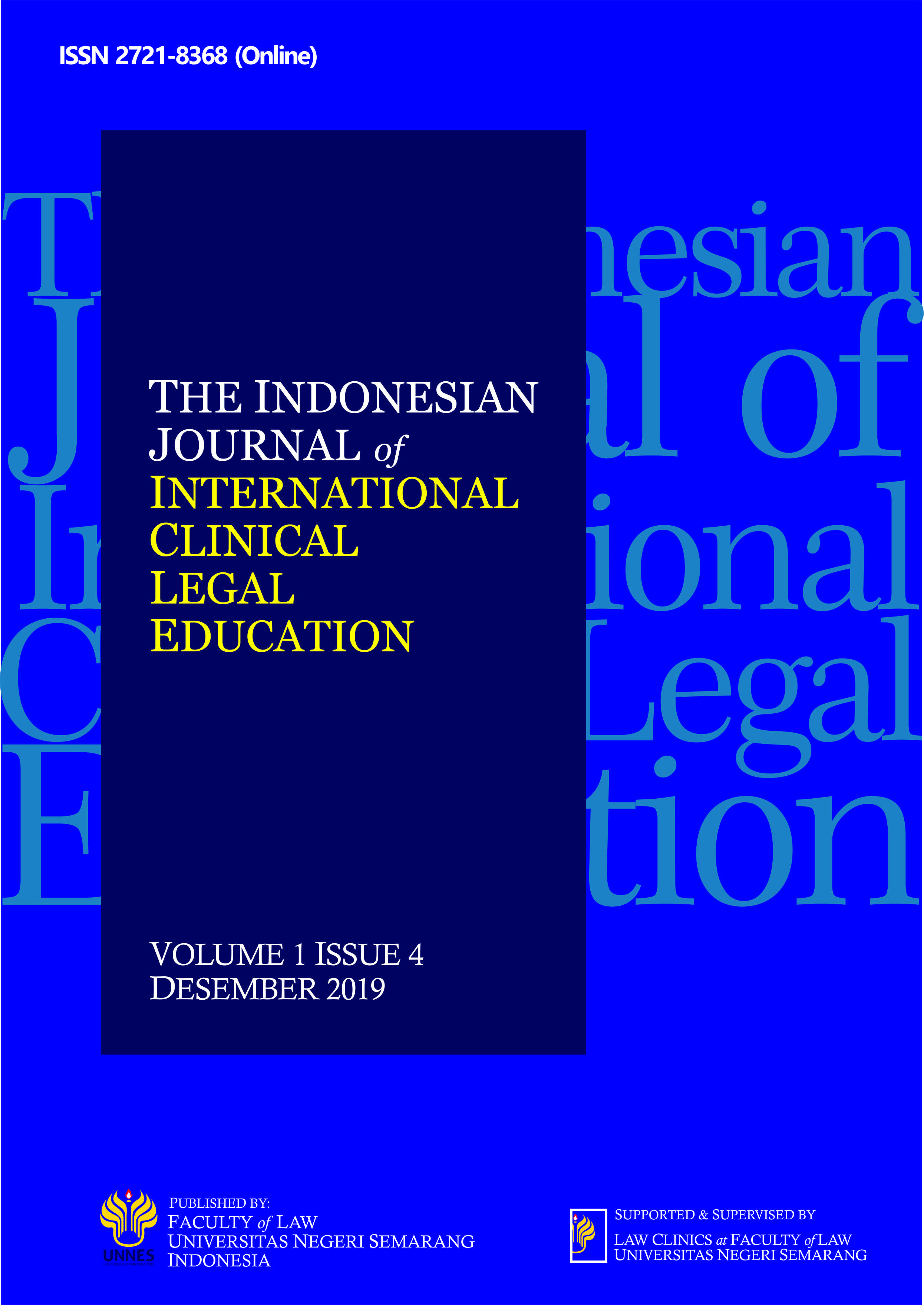Legal Aid Advocacy for the Poor in Law of Welfare States
Main Article Content
Abstract
Indonesia is a lawful welfare state, which means that the government
has a duty and responsibility in realizing the social justice and the
general welfare of the people. Paragraph (1) of the 1945 Constitution,
stated that The State must ensure the implementation of equality in the
standing before the law. Nowadays it seems only the lower class that
must obey the law, while the upper class seems to be immune to the
law. They are hiding from the law behind the layers of their own
money. As if the law can be sold using money, even for those who
commit major crimes, corruption for example. While the lower
classes who commit minor crimes can be imprisoned. Our country is a
country of law, then the law should be enforced, for all people and not
just for Reviews those who have the money. To realize the
implementation of the idea of a lawful welfare state then the State
should guarantee the right of every person to reach justice. In other
words, the State must guarantee the implementation of legal aid to the
impoverished or Reviews those who cannot afford so that none
has no access to justice that is mandated by the constitution. Legal aid
advocacy for the impoverished in the concept of a lawful welfare state
is certainly to be important in realizing the ideals of the lawful welfare
state that achieve social justice and general welfare of the
people. Therefore, it is important to know the concept of advocacy
suitable for the impoverished in a welfare state.
Article Details
The copyrights of the article in Indonesian J. Int'l Clinical Leg. Educ. is on the Author(s), however, before publishing, it is required to obtain written confirmation from Author(s) in order to ensure the originality (Author Statement of Originality). The statement is to be signed by at least one of the authors who have obtained the assent of the co-author(s) where applicable. This work licensed under a Creative Commons Attribution-ShareAlike 4.0 International (CC BY-SA 4.0). All writings published in this journal are personal views of the authors and do not represent the views of this journal and the author's affiliated institutions.
